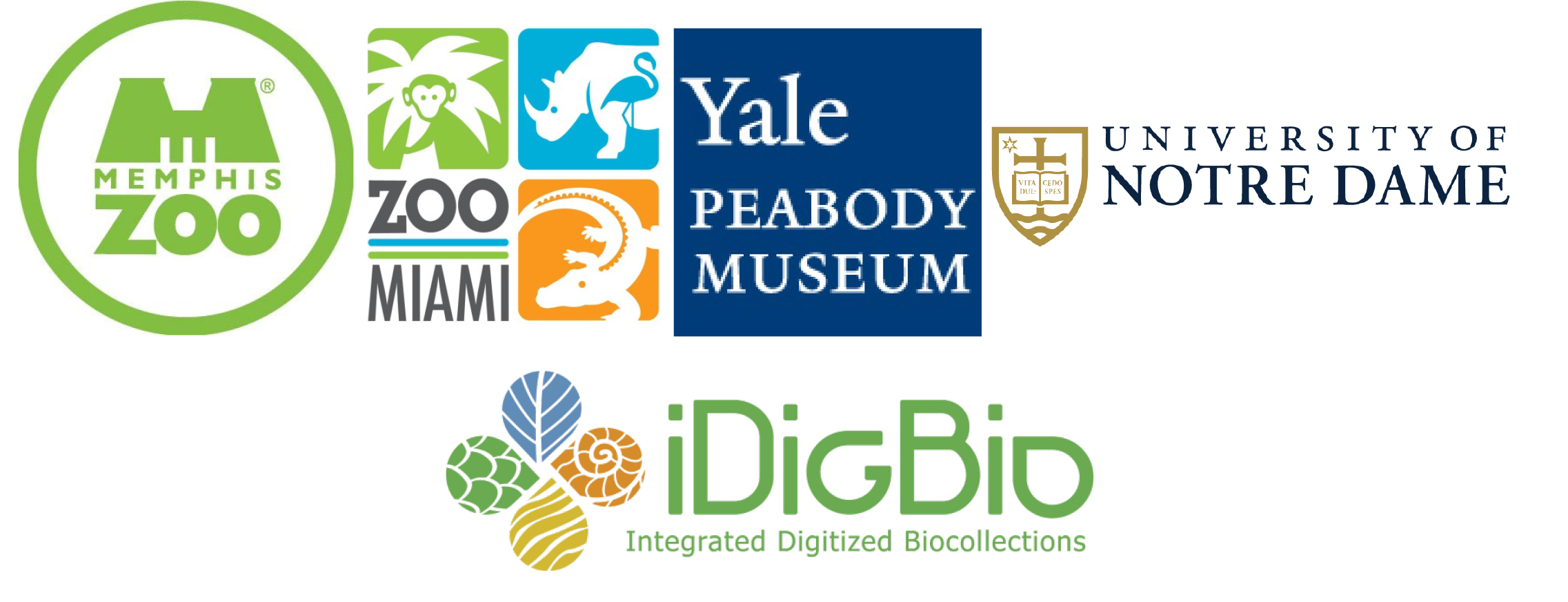
Zoo and aquariums hold a wealth of biological resources in their live collections that is unique to these institutions and cannot be simulated with traditional natural history collections in museums. As modern zoos transition from exhibits to conservation organizations, zoos are starting to focus on ways to enhance their contribution to the advancement of biological sciences. In recent years, the Association of Zoos and Aquariums (AZA) has placed increasing emphasis on the need for zoos to invest in scientific advancement through basic and applied research.
Given the similarities between zoos and museums as collection-based zoological institutions, there is an opportunity for the two types of institutions to work together more closely, both so that zoos can learn from the experience of this transition from museums, and so that museums can increase their collections by receiving biological samples from zoos (e.g. blood samples, genetic samples, digital images, and whole specimens). Despite the obvious value of zoo collections, they remain an untapped resource for the larger scientific community. Through a three-day workshop, researchers from zoos, museums, and academic institutions will gather to discuss concrete steps that zoos can take to make collection information available to researchers and standard collaborations between zoos and museums, so that biological samples and information can be shared with the larger scientific community.
Click here to view the conference web page and workshop wiki page.
Workshop organizers include:
Sinlan Poo: Research Scientist, Memphis Zoo
Steven Whitfield: Conservation and Research Specialist, Zoo Miami
Gregory Watkins-Colwell: Sr. Collections Manager, Yale Peabody Museum of Natural History
Alex Shepack: Post-Doc, Notre Dame University
Jillian Goodwin: iDigBio Conference Manager







